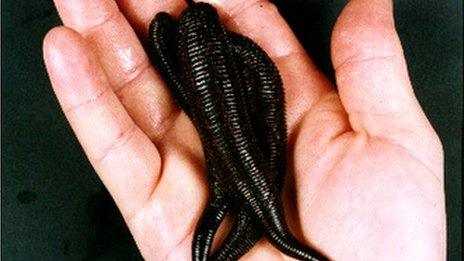Welsh-farmed leeches 'saved thousands of toes'
- Published
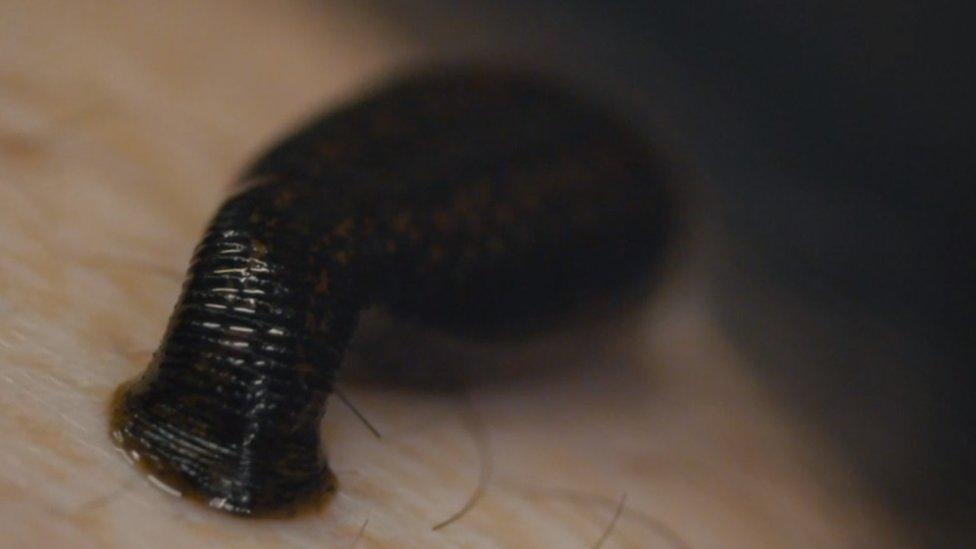
Biopharm Leeches says it has probably saved "hundreds of thousands of fingers, toes and skin flaps"
When you think of a leech and its role in medicine, you could be forgiven for conjuring up images of medieval surgical theatres.
But as viewers of the documentary Surgeons: At the Edge of Life found out, modern technological advancements have not been able to replace the humble leech.
Carl Peters-Bond is a leech farmer at Biopharm Leeches, near Swansea, which ships the creatures to hospitals across the world.
Mr Peters-Bond said the company's leeches have probably saved "hundreds of thousands of fingers, toes and skin flaps" over the years.
The BBC Two documentary, produced by Dragonfly, follows surgeons at the Addenbrooke's and Royal Papworth hospitals, two of the UK's leading centres of medical excellence near Cambridge.
Allow Facebook content?
This article contains content provided by Facebook. We ask for your permission before anything is loaded, as they may be using cookies and other technologies. You may want to read Meta’s Facebook cookie policy, external and privacy policy, external before accepting. To view this content choose ‘accept and continue’.

The second episode of the third series features 59-year-old former builder Kevin, who has been suffering for 15 years since having a cancerous lung removed.
His cancer was cured, but the cavity left in his chest had never healed and Kevin had to live with an open hole in his back.
Kevin says he came to the decision to have major surgery after a family day out was ruined when his chest began leaking "vile" pus.
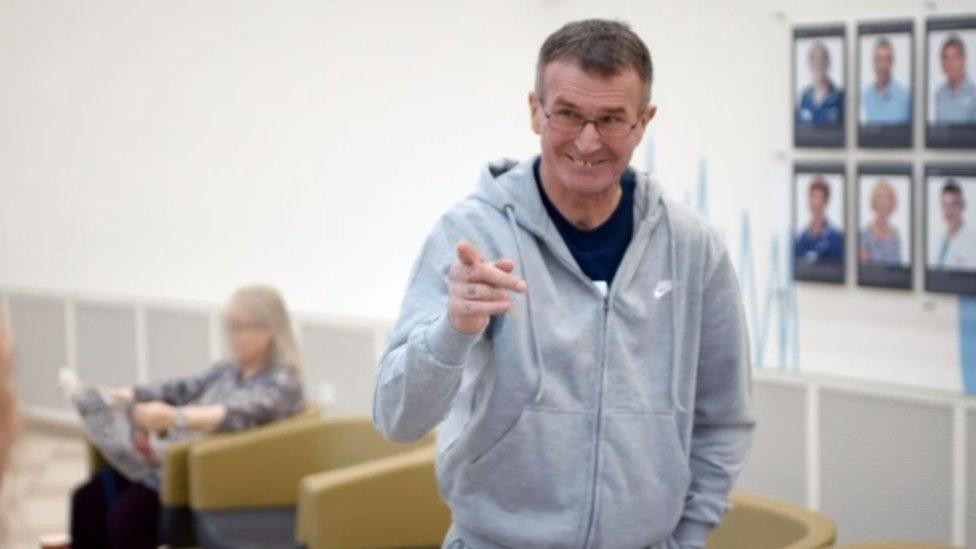
Kevin has been living with a cavity in his chest and hole in his back since a cancerous lung was removed 15 years ago
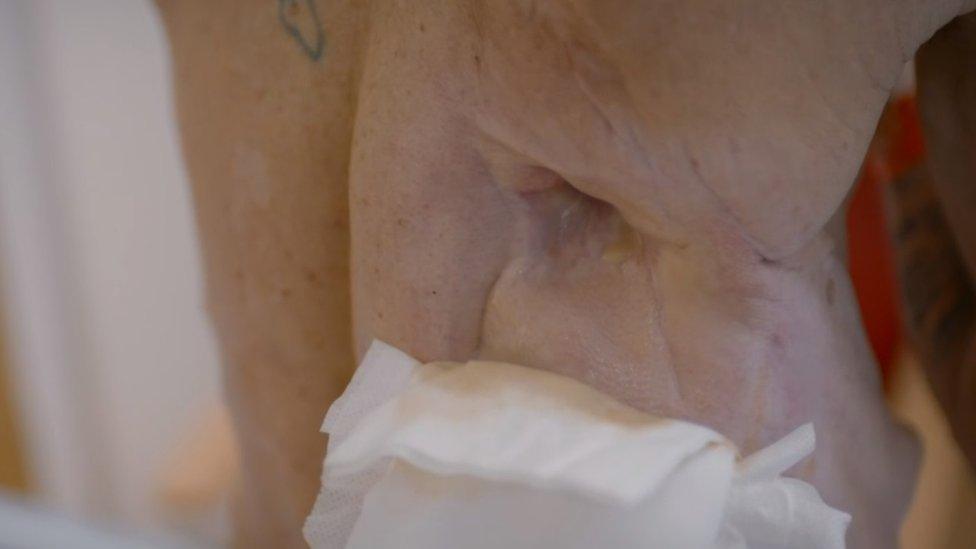
"I think it's one of the worst situations - you have had a curative operation but you are left with life-changing complications," consultant thoracic surgeon Aman Coonar said.
"They have got over the cancer but their life is terrible."
Mr Coonar carries out a chest wall reconstruction to fill the cavity left by the right lung and close the hole in Kevin's back in a 12-hour "marathon procedure" alongside plastic surgeon Charles Malata.
The procedure involves taking muscle from the other side of Kevin's back and attaching it across the hole.
But the problem with such procedures - and this is where the leech comes in - is that blood clots can form, leading to the death of the muscle.
About 20 leeches were placed on Kevin following the operation to help the tissue survive.
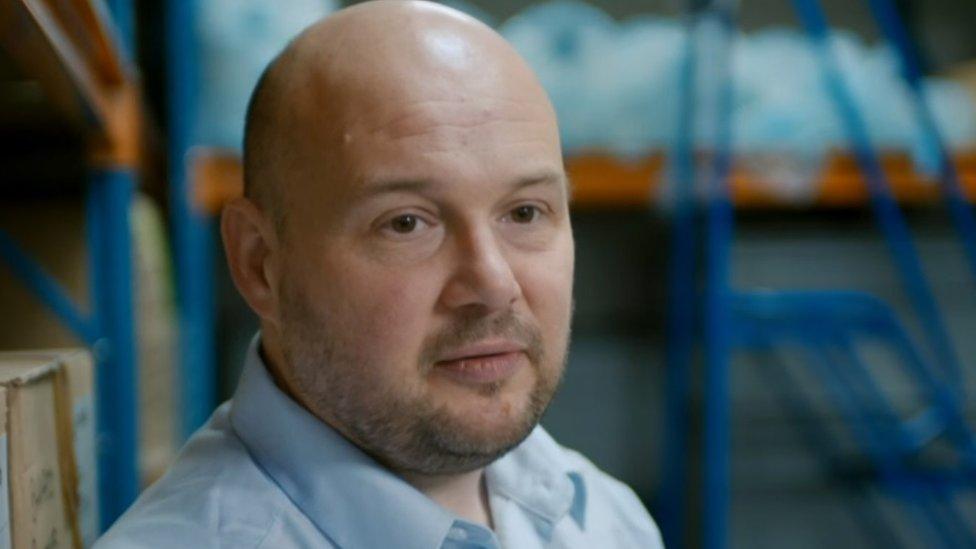
Carl Peters-Bond says the leech is "starved" for six to nine months before it is used for medical purposes
"The leech will attach and that action is drawing the blood through the area that is congested - maybe a skin flap or a finger and that's allowing it to stay alive long enough for the body to repair itself," explains Mr Peters-Bond.
"In the saliva of the leech there are probably about 14 or 15 different anti blood-clotting enzymes and proteins."
The leeches, which are usually fed sheep blood, are "starved" for six to nine months before they are used to ensure their guts are completely empty.
There have been attempts to make "artificial leeches" in the past, Mr Peters-Bond said, but the device costs "hundreds of thousands of pounds compared to around £10 for a leech".
Despite its work helping people recover from surgery, unfortunately there is no happy ending for the leech.
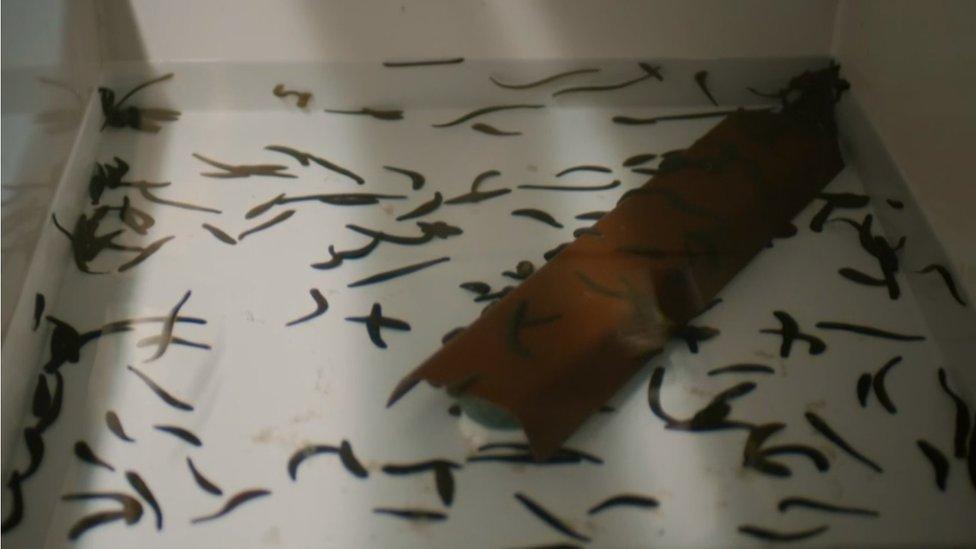
The leeches are a "biohazard" after they have been used on a person
"It's like a dirty needle - it's a biohazard," explains Mr Peters-Bond.
"And slightly worse than a dirty needle, it is like a dirty needle that can walk. Once they have done their important work, they are humanely put to sleep, which is quite sad really."
"We don't get to know about all the cases, but it is quite reassuring to know you were there to help."
Surgeons: At the Edge of Life, BBC Two at 21:00 on Tuesdays until 27 October and afterwards on BBC iPlayer
- Published28 May 2019
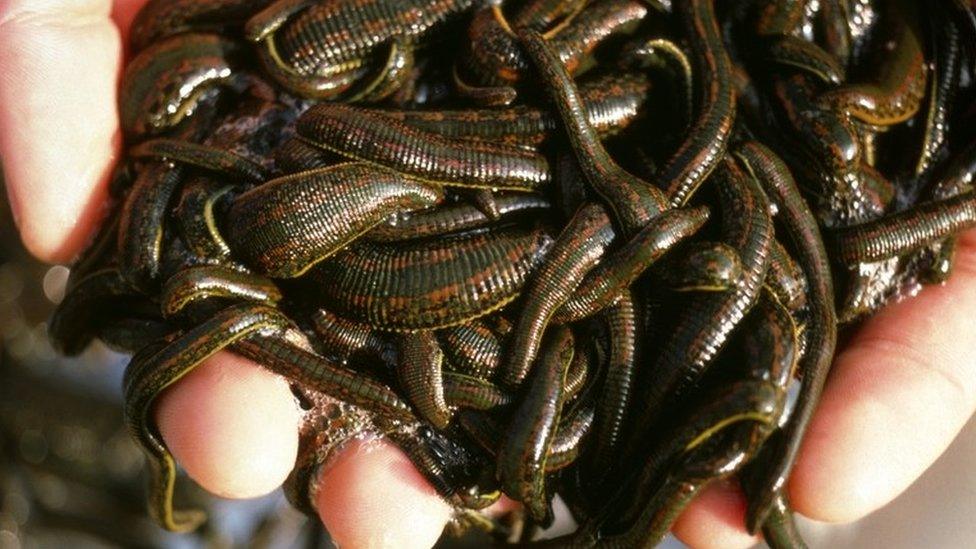
- Published7 July 2018

- Published29 April 2016
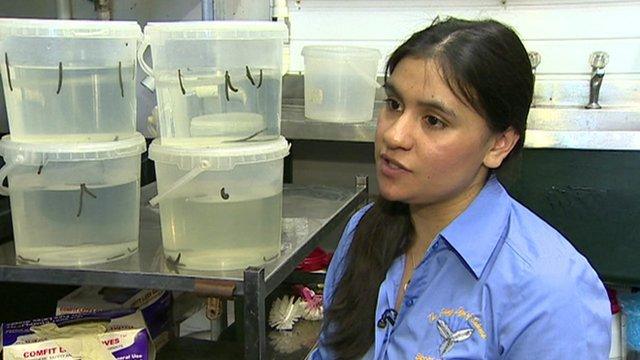
- Published13 August 2013
